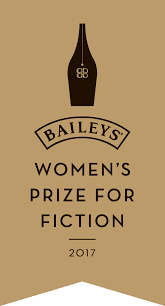Bailey's Prize 2017 Series: The Power by Naomi Alderman
Every day, there seems to be more reports coming out about
the various injustices done to a woman – or rather someone who is not a man. There
are the girls brutally defiled and violated on the streets in public. The child
who has been repeatedly raped by her male relatives. The grandmother who was
murdered in cold blood because she refused to fund her grandson’s various
activities.
And don’t you wish, if only things were different, if only
you could do something about them.
That is the premise of The
Power by Naomi Alderman. Alderman’s latest has been gathering colourful
reviews and has been shortlisted for the Bailey’s Women’s Prize for Fiction
2017. This is the first of the six shortlisted books I have read, and I decided
to pen down my thoughts.
I have a feeling The
Power is going to be one of those books that stand the test of time, like
Margaret Atwood’s The Handmaid’s Tale.
In Alderman’s alternate reality, young girls (in an unspecified century, but
definitely the modern era with the technology and the nasty internet forums)
develop an organ that allows them to transmit electric shocks. Young girls can
then awaken the power in older women. Unlike most sci-fi, The Power is set at the time when the
changes take place, to form a society much different than our own. The book
follows the changes told through the experiences of four people: Allie (later
Mother Eve) who uses the power to establish a permanent home (although the word
home is never specifically used); Roxy – the daughter of a London criminal who
later becomes strong enough to take on the business herself rather than her
half-brothers; Margot – the mayor of a town in the US whose power is awakened
by her daughter (who has less control than her) which leads to her growing more
ambitious and dare we say, corrupt(?); and then the only male perspective we
get, that of Tunde, a Nigerian student studying in America who decides to
chronicle the revolutionary changes occurring in different parts of the world.
It starts well enough, fairly; women trying to use the power
to protect themselves. This of course grows to be used as a weapon to claim
physical and political power in different countries – we see this through the
eyes (words) of Tunde. Meanwhile, Allie uses her extreme control of the
electric shocks to perform “miracles” raising her status as someone divine, a
prophet perhaps that people turn to. Roxy finds Mother Eve who gives her the
strength to run things herself. Then there’s Margo whose slow ascension to
political apex we see.
Then the situation avalanches. There are women who,
obviously frustrated with all men, take things to the extreme. The story reflects
the fact that, it doesn’t matter who you are, if you have infinite power that goes
unchecked (in the book it’s the titular power, in today’s world, money), you
get hungry for more, you get arrogant, and you start to do things that you might
have never thought you would. Or someone will. There are women who use their
power to ill-treat and mock her male subjects (like the Moldova President
Tatiana Moskalev), there are women who rape and mutilate men and so forth.
The book begins and ends with letters between Neil (who
writes The Power in the story) and
Naomi (of whom he is seeking validation). The letters are vastly reflective of
their society – it is ours, only upside down. The man doubts himself, the man
is domesticated, male babies are aborted, male genital mutilation and on the
list goes. The main thing the book gets you to think about, will the world
really be a better place if it’s exact opposite thing happening?
But, don’t count this is as a reason for why feminism is not
good – it’s rather the opposite. Feminism is after all, about equality – no more,
no less.
However, I found the ending to be slightly confusing and
anti-climactic. Clever readers will infer what has happened of course through
the letters between Neil and Naomi. One is not really sure though of what has
happened – although history is often that way. As is written in the book: “This is the trouble with history. You can’t
see what’s not there. You can look at an empty space and see that’s something’s
missing, but there’s no way to know what it was.”
That said, this book has been very well written (and it
turns out Naomi Alderman has written Doctor Who stories too). The Bailey’s Prize
nomination is well deserved and it is a must-read book. Recommended for: fans
of Margaret Atwood, fans of Ursula Le Guinn, sci-fi readers, women’s fiction
readers, Bailey’ Prize readers and of course anyone who wished to ponder about
the upside-down world.



Comments
Post a Comment